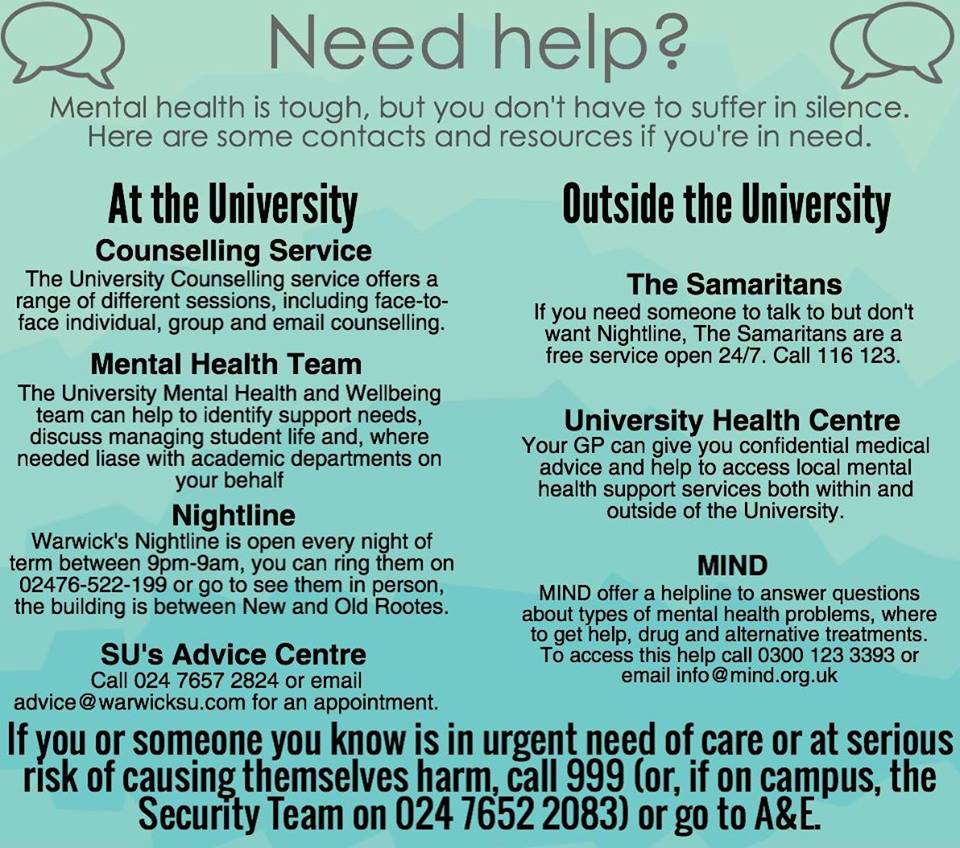Student Mental Health: What’s it like being treated for a personality disorder?
I live with a mental illness which requires me to take a number of prescribed psychiatric medications including antipsychotics and antidepressants. My diagnosis is borderline personality disorder and I also have symptoms of psychosis/underlying which is why I take the antipsychotics.
I was seen at an NHS specialist unit every week (for my “personality disorder”), however due to my mental state getting worse I had to be referred to the early intervention team for psychosis. Asides from this I am seen by my NHS psychiatrist every 3 months. Not forgetting various random hospital admissions during the year.
At university I am lucky to have a mentor (funded by DSA) who I see every week and a mental health coordinator who I see regularly. My mental health disorder interacts with and affects every single aspect of my life, from my social interactions to my capacity to study, to how I view myself. Essentially, I have a extremely rapid mood swings, extreme paranoia, hallucinations and suicidal ideation etc. It’s very unpleasant to have to experience this, but thankfully my medication actually does help.
The problem with having mental health problems is that they are invisible and there is huge stigma and lack of understanding from individuals, which is also why this is anonymous. People assume when they see me that I am fine, or if I disclose that I have a mental health disorder they feel uncomfortable or minimise my issues by saying “you’re not that bad though, you look fine.”
I don’t think I would ever have chosen to have this disorder. However, there are positives of course – I know a bit about psychiatry and have that lived experience that helps me feel compassion for a lot of people and I’ve learned a lot about resilience.
When I try to communicate what I experience people can be very dismissive or suggest that my particular mental illness is not real or give me tips which are not helpful, which add to the pressure to keep up with everyone else, and fit in.
The assumption that I am well and the lack of understanding of mental health issues (from people) means I have to work extremely hard at a number of aspects of my life including my studies and social interactions. I have to remind myself that to achieve certain grades is great *especially* if you mental illness.e.g. Imagine having to write an essay but on your mind you’re constantly thinking that people are plotting against you, trying to harm you and you start seeing things that aren’t there.
It’s hard to do. And I have to remind myself that it is okay to struggle to communicate in general with people and that if people think I’m “weird” or “strange” that I can’t help that perception because unfortunately, my whole life is affected by my disorder.
Unfortunately, however much I remind myself that i’m good and okay it can be extremely isolating to suffer from mental health problems. It’s hard to communicate that you’re symptoms are getting worse, and for that to be taken seriously.
I don’t think I would ever have chosen to have this disorder. However, there are positives of course – I know a bit about psychiatry and have that lived experience that helps me feel compassion for a lot of people and I’ve learned a lot about resilience.


Comments